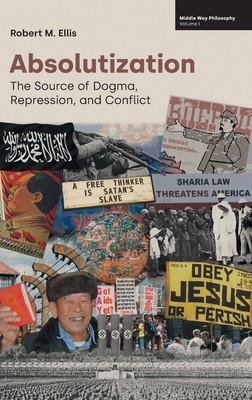
- We will send in 10–14 business days.
- Author: Robert M Ellis
- Publisher: Equinox Publishing
- Year: 2022
- ISBN-10: 1800502052
- ISBN-13: 9781800502055
- Format: 15.6 x 23.4 x 1.8 cm, kieti viršeliai
- Language: English
- SAVE -10% with code: EXTRA
Reviews
Description
What do dogma, repression and conflict have in common? They all result from human judgement blocked from wider understanding by a false assumption of completeness. This book puts forward a theory of absolutization, bringing together a multi-disciplinary understanding of this central flaw in human judgement, and what we can do about it. This approach, drawing on Buddhist thought and practice, philosophy, psychology, neuroscience, embodied meaning and systems theory, offers a rigorous introduction to absolutization as the central problem addressed in Middle Way Philosophy, which is a synthetic approach developed by the author over more than twenty years in a series of books. It challenges disciplinary boundaries as well as offering a substantial framework for practical application.
EXTRA 10 % discount with code: EXTRA
The promotion ends in 22d.12:34:47
The discount code is valid when purchasing from 10 €. Discounts do not stack.
- Author: Robert M Ellis
- Publisher: Equinox Publishing
- Year: 2022
- ISBN-10: 1800502052
- ISBN-13: 9781800502055
- Format: 15.6 x 23.4 x 1.8 cm, kieti viršeliai
- Language: English English
What do dogma, repression and conflict have in common? They all result from human judgement blocked from wider understanding by a false assumption of completeness. This book puts forward a theory of absolutization, bringing together a multi-disciplinary understanding of this central flaw in human judgement, and what we can do about it. This approach, drawing on Buddhist thought and practice, philosophy, psychology, neuroscience, embodied meaning and systems theory, offers a rigorous introduction to absolutization as the central problem addressed in Middle Way Philosophy, which is a synthetic approach developed by the author over more than twenty years in a series of books. It challenges disciplinary boundaries as well as offering a substantial framework for practical application.


Reviews